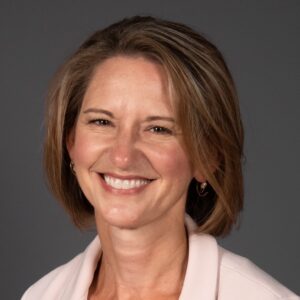Making the phones ring
On March 4, nearly 5,000 members of the American Association of Homes and Services for the Aging (AAHSA) and its supporters flooded the United States Senate with calls and sent 1,500 e-mails to their representatives. The message? Make sure our long-term care services and supports are part of health reform. How they got this done was impressive.
Mike Moore of United Presbyterian Home in Washington, Iowa, had residents and employees lined up to make calls. Tim Blanton at Birmingham’s Episcopal Place hung a banner, gathered residents, and called the local television station, which did a story about the call-in effort. Win Marshall, AAHSA’s board chair-elect, held a telethon for staff. Their e-mail systems, Web sites, and blogs were buzzing with the call to call. Check out our gallery to the right for photos of these and other call-in efforts.
The day’s calls are followed by advertisement in the Congressional newspaper Roll Call. The advertisement coincides with the March 5th hearing of the Senate Special Committee on Aging and the White House summit on healthcare reform with representatives from both sides of the aisle. Our ad makes a strong case for the need for change. The credibility of the groups involved is impeccable. And that list is the tip of the iceberg. Now, nearly 200 groups support the direction we are advocating.
These groups cover every community in America. They respond to every social, medical, personal, psychological, or spiritual condition any of us could face. Virtually every family will be affected by the problems of aging or challenges younger people face because of accidents, genetics, or disease. Every family and neighborhood will be called on to help any of us who do, or may, need their help to have a reasonable quality of life.
In fact, 48 million people have no health insurance and 250 million people are uninsured for long-term care. You know the story. You see it every day. You face these issues in your own families. Yet, prior to March 4th, Sen. Harry Reid (D-Nev.) told some of our colleagues his phones don’t ring about this issue.
A good friend of mine is chief of staff for a prominent member of Congress. We talked about what gets Congress’s attention. He recounted a story about when Sen. Bob Dole was Senate Majority Leader. My friend, who worked with the National Governor’s Association, accompanied a governor to visit Dole and discuss an issue important to several governors.
As my friend recalls, Dole said he hadn’t heard about the problem. The governor pushed back. Dole asked his receptionist how many phone calls the office received about the issue. “None” was the reply. Then, Dole asked how many calls they had about free trade that week. “Over 3,000,” the receptionist replied.
“I’m spending my time on free trade issues,” Dole said.
It’s puzzling what pushes the public’s buttons and prompts outrage. Gun control can do it. A policy expert told me that any threat to the freedom to own a gun can generate 100,000 phone calls in a couple days. No value judgment—just an observation.
| Larry Minnix, President and CEO of AAHSA |
This week, I was also privileged to meet Dr. Denis Cortese, CEO of the Mayo Clinic. Cortese is providing great thought leadership to health reform. Cortese told our group that more than 100,000 people die annually from medical errors, most of them preventable. He said that’s the equivalent of a Boeing 747 crashing every couple of days in America. Would we stand for those crashes, he asked? We know the answer, yet we accept medical errors.
Providers see the problems of fragmented care, inappropriate and burdensome regulation, limited resources, and caregivers, both volunteer and paid, who are inadequately trained and supported. Using the medical errors analogy, that is equivalent to 250 million people living at risk of being exposed to inadequately prepared foods or gang violence. On those issues we would demand a change. We would make the phones ring. We would tell elected officials to make changes or we would elect people who would.
Another puzzle exists in society. Some people speak up and are heard. Others don’t or aren’t heard. Why? Malcolm Gladwell, in his book the Tipping Point, reflects on Paul Revere. Every American knows about Paul Revere’s ride. He was heard. People responded. A new country was the hard-fought result.
Gladwell tells the story of another patriot. William Dawes was a fellow revolutionary and friend of Paul Revere. He rode off in the opposite direction with a similar message. Nobody listened. Few remember his name. Paul Revere rang the bells and was heard.
On March 4th, we started ringing bells. We must continue to make the phones ring. Call the local and national offices of your elected officials. Don’t take any more ambiguous responses. Organize your efforts with friends like Easter Seals or the Alzheimer’s Association. Working together, our voice will be heard. We will make it affordable to care.
I Advance Senior Care is the industry-leading source for practical, in-depth, business-building, and resident care information for owners, executives, administrators, and directors of nursing at assisted living communities, skilled nursing facilities, post-acute facilities, and continuing care retirement communities. The I Advance Senior Care editorial team and industry experts provide market analysis, strategic direction, policy commentary, clinical best-practices, business management, and technology breakthroughs.
I Advance Senior Care is part of the Institute for the Advancement of Senior Care and published by Plain-English Health Care.
Related Articles
Topics: Articles , Facility management












